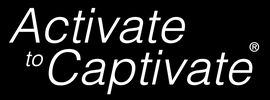|
Some people have a difficult time sharing their achievements. While being humble is important, there are certain situations where you need to be able to talk about your success, like in a job interview or when you’re up for a promotion. Because if you can’t talk about what you’ve achieved, then it puts the pressure on other people to figure it out. That’s a lot to ask of someone else, especially if they don’t know you well. It’s also hard if a supervisor needs to advocate for you, if you can’t advocate for yourself. That’s why I’ve come up with a few phrases to help people share their accomplishments in an authentic and genuine way.
1. Looking back at myself five years ago, I’m proud to say that I’ve been able to… Thinking about how far you’ve come in your career is a great way to talk about your accomplishments. It’s a nice way to give yourself some perspective so that you can articulate your journey and highlight how much you’ve achieved. 2. I’m grateful that I had the opportunity to contribute to __________ project. Coming from a place of gratitude is useful in most situations. Especially since pompous people rarely bring up how thankful they are. Try using this phrase to help you bring up an achievement in an organic way. 3. When I look back on my career, some of the moments that stand out are…Accomplishments aren’t always attached to a particular project. They can be relationships that you’ve formed, people that you mentored, or even times you’ve invested in yourself — like going back to school to learn a new technique. Reflecting on your journey allows you to highlight experiences that have made an impact. Try using these phrases if you have a harder time bringing up your accomplishments. Using these responses can help other people understand your strengths, your career milestones, and give others a picture of what you might be able to achieve in a new role. Author: Bri McWhorter  Interviewers ask all types of questions. While each interview is different, many people worry about how to answer one question in particular: What’s your greatest weakness? This is a difficult question for many people to answer. Some people believe that your weakness should also be a strength. For example, when someone says their greatest strength is “being a perfectionist” they also say that sometimes it goes too far and then “being a perfectionist” is also a weakness. I personally don’t believe in that method. When someone asks about your weakness, this is an opportunity to show that you can reflect on your own abilities and identify skills you can continue to improve. For example, I tell my students in my Public Speaking program that they can reference my training in an interview. For example they could say: I am not a natural public speaker, but I know I’ll need to present my work to my colleagues effectively. That’s why I enrolled in a public speaking class so I could hone my skills and get more comfortable in front of an audience. Or, if you aren’t great at time management you could say: In my former job, I realized I could get distracted by details on a project. So now, at the start of every week I write out a list of things I need to accomplish by Friday morning. I’ve found that I can be far more productive when I have a deadline in mind while still budgeting some time for unexpected events. Or, if the job you’re interviewing for requires you to know how to use a program you didn’t use in your former position, you could say: I know that using Wordpress is a key part of this job, so I’ve been building some websites for friends in order to practice coding for different clients. While I didn’t use it in my former job, I’ve enjoyed getting familiar with the program and am excited about using it more. So next time someone asks you about a weakness, don’t worry. Instead, share something you’re aware you could improve, and talk about how you’re being proactive about it. Author: Bri McWhorter Back to back virtual meetings can be draining, so it makes sense to allow colleagues to keep their cameras off during certain events. Plus, everyone has a lot going on right now and it helps to give people the option of participating without worrying about kids running around in the background or WiFi bandwidth issues.
However, as a speaker it can be very difficult to bring the same energy and enthusiasm to a presentation when you don’t have anyone to talk to or interact with. It’s disconcerting to “check-in” with your audience and only see black boxes staring back at you. Thankfully, there is one situation we are all comfortable with where you never see the person you are talking to, but it doesn’t throw you off — a phone call. When you call someone, in order to visualize that person effectively, it's good to ask where that person is so you can picture them in that location and then deliver your story. Even though you never see their face, you can still feel energized because you can imagine their reactions in your head. That’s why I recommend deciding two things if you're the only one on camera during a presentation:
Then, pretend you’re on a phone call during your presentation. Imagine the person reacting to your story and notice how your presentation changes. This way, you can keep the energy of your original talk without needing to see people looking back at you. Author: Bri McWhorter Your voice is an incredibly powerful tool. It’s especially important since most people are conducting their meetings virtually where they can’t rely as heavily on using body language to communicate. That’s why having a clear and strong voice is critical. However, when you’re in back to back meetings it’s easy for your voice to get tired. Therefore, here are three ways to help you avoid vocal fatigue:
1. Warm up your voice beforehand People know how important it is to warm up their body before doing a physical activity, but they don’t often think about warming up their voice before speaking. That’s why I spend at least a few minutes before I teach my workshops warming up my voice. I like to blow through my lips, spend some time humming in different pitches, and I move around a bit so I am breathing deeply and fully. That way I know my voice will be ready to use when I speak up in a meeting. 2. Sit up tall If you’re attending multiple meetings, it’s easy for your body to melt into a “schlump” where your shoulders are crouched over and your head is tilted back. This collapsed position is very hard on your voice because you’re collapsing your voice box and inhibiting your breathing. Therefore, I recommend either coming to the edge of your seat and sitting up tall, or standing as you present, if you are going to be talking for a while. That way your physical stance will keep you supported. 3. Avoid clearing your throat Many people “clear” their throats before speaking. However, that actually makes things worse. It can aggravate your throat and, overtime, cause more vocal issues down the road. Instead, I recommend humming and then swallowing. This process still clears away any mucus you have built up, but it doesn’t aggravate your throat when you do it. By warming up, keeping a tall and supported stance, and avoiding clearing your throat, you can help avoid vocal fatigue. Before any interview, you want to make sure you are prepared for success. This includes researching the company and job description so that you are able to answer the interviewer’s questions with ease. But no matter how much research you do, it’s very rare that you’ll know the exact questions the interviewer will ask. That’s why I recommend brainstorming stories that you can use in a variety of scenarios. Look at the list below, compare it with the type of job you’re interviewing for, and then think of 3-5 stories that you can share in your next interview.
Types of Stories to Prepare: 1. Origin story (Your background) 2. Leadership story (You in this position or the type of leader you want to be and why) 3. Overcoming an obstacle 4. A time you failed (Plus what you learned from it) 5. Diversity story (Not just that diversity is important but a story of you understanding the value or being involved in a specific initiative) 6. Working with a difficult boss / teammate 7. Asking for help (This shows that you analyze situations before jumping in) 8. Taking initiative or going the extra mile 9. Having to think on your feet (Can be similar to an obstacle story) 10. Proud accomplishment An interview is a great opportunity to show off your skills. That’s why it’s important to take the time to prepare examples that show how you act and respond to different scenarios in the workplace. If you have various stories prepared, you’ll be able to have useful examples to share, no matter what specific question is asked. Author: Bri McWhorter It happens to the best of us. You start to answer a question and then find yourself going on too many tangents and aren’t sure how to recover — you’re rambling. The issue with rambling is that it’s hard for your audience to follow your train of thought and figure out what your core message is. It takes effort for listeners to stay alert to the twists and turns in your story.
Therefore, if you are rambling in an interview or in a meeting, when you find yourself thinking, Where am I going with this? it’s important to know how to wrap up your thoughts and come to a clear conclusion. It’s that core message, or the phrase that you want people to recall, that you need to be direct about. Thankfully, that’s all you have to practice — ending with that take-home sentence that you want people to remember. Unfortunately, instead of ending with a direct message, most people get embarrassed and end their answer with a trail-off phrase such as, “So ya…”. Or, they just end with a small detail about a story that has nothing to do with the question. Instead, practice ending with the sentence you want people to recall. Let’s pretend you’re asked in an interview, “What is your greatest strength?” If you find yourself giving a long-winded answer, instead of trailing off, I’d bring it back to the original question and say something along the lines of, “And that’s why I think collaboration is one of my greatest strengths.” That way, if your answer was slightly disjointed, you still ended with the message that you want the interviewer to remember — that you are a great collaborator. It takes some practice, but this technique can be used in all types of settings. If you’re in a meeting, talking about a project update, and you find yourself describing insignificant details, instead of ending with, “I know that was a lot of information,” I’d end with, “That’s why I believe we are on track with the latest design.” That way, even if the team got confused by some of the information you provided, there won’t be any questions on the current state of the project. If you find yourself rambling, just take a breath, think about your core message and end your answer with that sentence. It’s a simple yet effective tool to help you and your audience communicate. Questions are an integral part of any interview. But the way questions are commonly phrased can stop a lot of people. That’s why it’s important to think about not just what the interviewer is asking, but why they are asking. Rephrasing the interview question to yourself can be a useful tool to help you figure out what you should share. Below I’ve written out a few popular interview questions, and alternative ways to approach them.
Question One: Tell me about yourself. Alternative: How are you putting your passion into action? Question Two: Tell me about a mistake you’ve made. Alternative: Can you own up to mistakes you’ve made in the past? What do you do differently because of what you’ve learned? Question Three: What are your strengths? Alternative: What areas do you excel in and how will that help us? Question Four: What are your weaknesses? Alternative: Are you aware of the areas you can improve in? What are you doing to work on those skills? Question Five: Tell me a time where you had to think on your feet. Alternative: Since surprises happen, give us an example of how you are able to adapt to unforeseen circumstances. Sometimes rephrasing the questions you’re asked can help you think of answers. Figure out why they are asking this question and how knowing this information will help them hire you with more ease. Click here for more interview questions to be prepared for.  Many people hate small talk. They’d rather engage in “meaningful" conversation. However, if you think about it, small talk can be quite meaningful. It allows people a safe environment to find common interests, engage with people they don’t know well, and connect with others outside their immediate bubble. If you aren’t sure how to begin a new conversation, try categorizing small talk into these three categories: 1. Personal — plans, ideas for activities, things to watch, etc. For example: "Any plans for the holidays?" "I love exploring the outdoors. Do you have any recommendations on places to visit?" "I've been watching this great new show _______. Have you seen it?" 2. Professional -- work, research, news articles, etc. For example: "What do you do?" "I've been working on this project lately where _______. What are you working on right now?" "Did you read that article on _______? I found it interesting how _______." 3. Location and environment — things in the area, events, the weather, etc. For example: "Have you been to any farmer's markets around here?" "I heard there is a fair coming into town. Have you been before?" "I love this time of year when it gets a little colder. Do you have a favorite winter activity?" Now once you start a conversation, the trick is to keep the dialogue going. If someone isn't familiar with the idea you bring up, don't just answer "yes" or "no" and leave it there. Instead, find a way to continue talking until you find common ground. For example: "Did you watch the baseball game last night?" "No, I didn't see it. I was busy testing out a new risotto recipe. Do you enjoy cooking?" It takes a while for people to feel safe enough to open up. Small talk can be an incredible tool to use. You never know who you will meet and where that one interaction can lead. The video interview is an integral step in the hiring process. Before your next video interview, please read these tips:
1. Have a clean background You want the interviewer to focus on you, not what is happening around you. You don’t want your weird poster to distract the interviewer. It's always better to have a clean background so that you are the most interesting thing on screen. 2. Different screen widths Even if you have a clean background, you should remember that Zoom, Skype, Google Hangouts, and FaceTime all have different screen widths. So, even if your background is clean on a FaceTime call, when you use Skype the blanket you have crumpled up in the corner of the room might be visible. Be sure your background is clean in all video mediums. 3. Put the computer at eye level Most computer screens are below your chin, which is one of the most unflattering angles possible. Instead, raise your screen so that the camera is at eye level. You want to mimic an in-person conversation as much as possible. Real conversations happen at eye level. 4. Don’t wear stripes Small stripes are hard to for a camera to capture. You don’t want to look like your shirt is vibrating on screen. Stick with solids or simple patterns over stripes or dynamic patterns. You want the interview to focus on you, not your wardrobe. 5. Plug in your laptop Video streaming takes up a lot more battery than normal. The last thing you want is for your computer to die during your interview. Always make sure it is plugged in. 6. Have notes Have your resume, information about the company, questions to ask the interviewer, and any other notes you need easily accessible. Be sure to take advantage of the fact that you can set up your interviewing space however it will benefit you the most. 7. Have water nearby It’s always better to have water nearby. You don’t want to get a tickle in your throat during your interview and have to go into another room to get a drink of water. 8. Do a test run Technology is amazing. It’s also notorious for breaking down just when you need it the most. Be sure to test your technology in the room (and in the clothes) you are planning on using for the interview. 9. Look friendly as the call connects If you are staring at your screen and intensely watching as the call goes through, your face can look worried or frustrated. Instead, as soon as you go online, try smiling so that the first thing your interviewer sees is a friendly face. 10. Know how to share your screen Sometimes people will ask you to share slides from a presentation. This means you will need to know how to give them access to your desktop. Know where this feature is, and how to use it. You also want to be sure that you minimize any tabs before sharing your screen. I recently had the opportunity to sit in on 15 mock interviews for graduate students and postdocs. While a list of standard interview questions was provided as a resource, each interviewer was encouraged to bring their own spin to the interview process. I was able to take notes and compile the questions below. If you are a student who is about to go on the job market, hopefully these questions will help you prepare.
Questions About Previous Experience
Questions About Teams & Mentoring
Questions About Challenges
Questions About the Future
|
AuthorBri McWhorter is the Founder and CEO of Activate to Captivate. Categories
All
Videos
Archives
June 2024
|
Click to Contact
© 2014-2024 Activate to Captivate, LLC
All Rights Reserved
All Rights Reserved








 RSS Feed
RSS Feed
